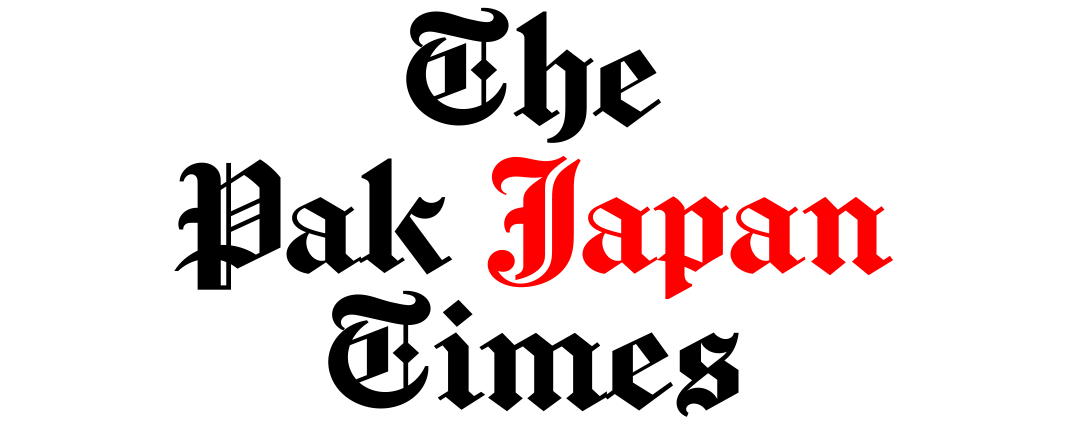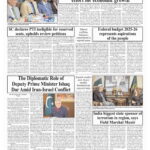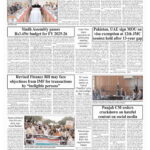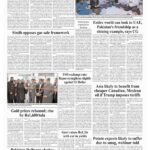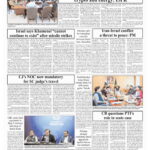By Muhammad Irfan Siddiqui
The Pahalgam attack in Indian-administered Kashmir sent shockwaves across the subcontinent, triggering predictable accusations from New Delhi towards Pakistan. However, what followed from Islamabad was a masterclass in diplomacy, clarity, and poise. Instead of reacting impulsively, Pakistan’s leadership demonstrated remarkable restraint, presenting the nation as a responsible actor committed to peace and truth. Central to this mature response was the strategic role played by Deputy Prime Minister and Foreign Minister Senator Ishaq Dar.
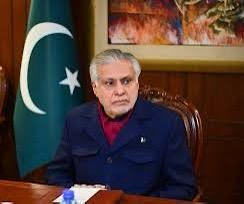
In a world where narratives often overpower facts, the Pakistani government knew that India would seize the opportunity to once again paint Pakistan with the usual brush of blame — without any investigation or evidence. However, this time, Pakistan was ready, not with rhetoric, but with a structured diplomatic outreach that undercut India’s propaganda with facts, openness, and a willingness for transparent inquiry.
Ishaq Dar, long known for his economic acumen, emerged as a confident and capable foreign policy strategist. Immediately after the Pahalgam incident, he mobilized Pakistan’s diplomatic machinery. Within hours, the Foreign Office began reaching out to world capitals, engaging with foreign ministers and prime ministers across continents. Dar led this effort personally, ensuring that the international community heard Pakistan’s position directly from its highest diplomatic office.
What was most striking in Pakistan’s approach was the offer for neutral, international investigation. This wasn’t a defensive maneuver — it was an offensive diplomatic strike. It not only demonstrated Pakistan’s confidence in its non-involvement, but also exposed India’s unwillingness to subject its claims to neutral scrutiny. By inviting international observers to examine the facts on the ground, Pakistan shifted the burden of proof back on India.
Dar’s outreach to key global players — including the United States, China, Russia, the Gulf states, the EU, and influential Muslim countries — proved highly effective. He explained that India was once again attempting to deflect attention from its growing internal unrest, human rights violations in Kashmir, and rising Hindutva extremism by externalizing blame and manufacturing a threat from Pakistan.
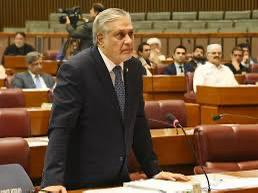
More importantly, Dar warned of the dangerous game India was playing. By whipping up war hysteria and falsely accusing Pakistan, India was laying the groundwork for a potential military misadventure. He urged the world community to act preemptively — not reactively — to prevent escalation in a region already burdened with two nuclear-armed neighbors.
Global reactions in the following days suggested that Dar’s efforts bore fruit. While Indian media tried to ignite anti-Pakistan sentiment, the international media remained skeptical. There was no rush by major powers to blame Pakistan. In fact, several global leaders publicly urged India to act with restraint and await a proper investigation.
Dar also used multilateral platforms effectively. Through Pakistan’s missions at the United Nations and the OIC, Islamabad underscored the need for an impartial inquiry and reiterated that Pakistan had no interest in destabilizing the region. His statements at diplomatic forums emphasized Pakistan’s long-standing position that peace in South Asia requires resolution of core issues — not blame games and military brinkmanship.
At home, Dar received praise from parliamentarians and policy analysts alike for steering Pakistan through a potential diplomatic storm. His firm, fact-based, and calm demeanor won admiration not only in Pakistan but also in international circles where maturity and steadiness are rare in times of crisis.
This foreign policy moment also marked a quiet transformation in how Pakistan presents itself on the global stage. Rather than reacting emotionally or through military signaling, the country now leverages diplomacy, logic, and legality to defend its interests. Ishaq Dar’s performance suggests that Pakistan’s foreign policy is increasingly being driven by professionalism and long-term strategy, not populism or bombast.

Critics in India who had hoped to isolate Pakistan found themselves frustrated. The Pakistani narrative — of cooperation, neutrality, and peace — triumphed over India’s attempt to monopolize victimhood. By the end of the week following the attack, it was India that appeared inflexible, reactive, and driven by domestic political calculations.
It is also worth noting that Dar’s outreach extended beyond governments. He engaged think tanks, international media, and diaspora communities to build a comprehensive counter-narrative. Through interviews, statements, and briefings, he made sure that Pakistan’s position reached every corner where it mattered.
In conclusion, Pakistan’s foreign policy response to the Pahalgam incident deserves commendation. But more specifically, Senator Ishaq Dar’s leadership during this critical juncture proved that effective diplomacy can achieve what threats and reactionary politics cannot. His calm yet assertive strategy helped Pakistan avoid escalation, build international trust, and expose India’s hollow allegations. It was not just a good week for Pakistani diplomacy — it was a defining moment of statesmanship.
